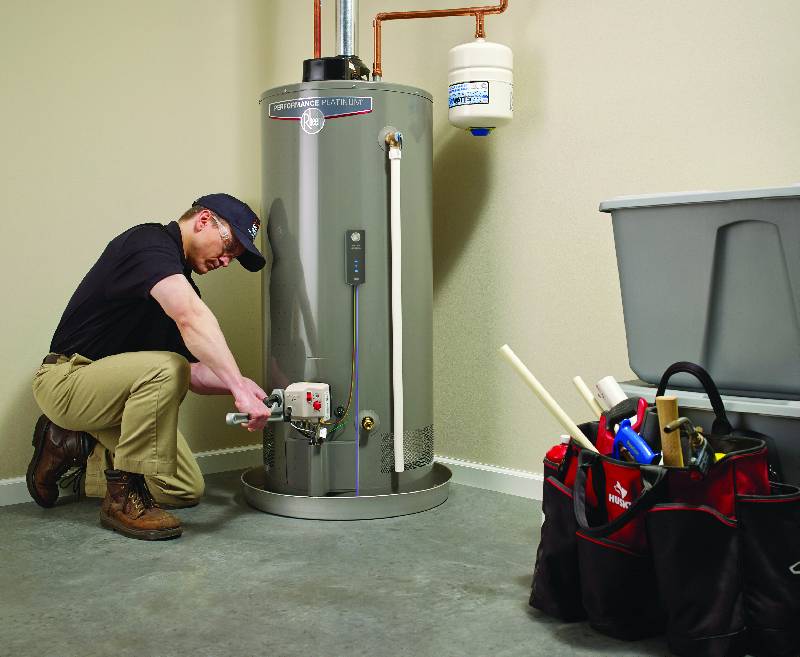Handling Common Water Heater Malfunctions
Handling Common Water Heater Malfunctions
Blog Article
Everyone seems to have their own unique rationale on the subject of Common Problems with Your Home Water Heater.

Think of beginning your day without your regular hot shower. That currently establishes a bad tone for the rest of your day.
Every home needs a dependable hot water heater, yet only a few recognize how to take care of one. One easy method to keep your water heater in leading form is to look for mistakes on a regular basis and repair them as soon as they show up.
Bear in mind to turn off your hot water heater before sniffing around for faults. These are the hot water heater mistakes you are probably to experience.
Water as well warm or also chilly
Every water heater has a thermostat that figures out exactly how warm the water gets. If the water coming into your residence is also hot regardless of establishing a hassle-free optimum temperature level, your thermostat could be malfunctioning.
On the other hand, too cold water might be because of a failed thermostat, a busted circuit, or incorrect gas flow. As an example, if you use a gas water heater with a damaged pilot light, you would get cold water, even if the thermostat remains in perfect condition. For electric heaters, a blown fuse may be the wrongdoer.
Not enough hot water
Hot water heater come in many dimensions, relying on your hot water needs. If you run out of warm water prior to everyone has had a bathroom, your hot water heater is too small for your family size. You must think about installing a bigger hot water heater storage tank or selecting a tankless hot water heater, which takes up less room as well as is much more resilient.
Strange noises
There are at least 5 kinds of noises you can speak with a hot water heater, however one of the most usual interpretation is that it's time for the hot water heater to retire.
First of all, you need to be familiar with the regular sounds a hot water heater makes. An electrical heating system might appear different from a gas-powered one.
Popping or banging audios usually mean there is a piece of sediment in your tanks, and it's time to clean it out. On the other hand, whistling or hissing noises might merely be your valves allowing some pressure off.
Water leaks
Leaks can originate from pipes, water connections, shutoffs, or in the worst-case scenario, the container itself. Over time, water will certainly corrode the container, and also locate its escape. If this takes place, you require to replace your hot water heater asap.
However, prior to your change your entire tank, be sure that all pipelines are in location and that each valve works perfectly. If you still need help determining a leakage, call your plumber.
Rust-colored water
Rust-colored water implies one of your hot water heater elements is rusted. It could be the anode pole, or the storage tank itself. Your plumber will certainly be able to identify which it is.
Warm water
Despite how high you set the thermostat, you won't get any type of hot water out of a heater well past its prime. A water heater's efficiency might minimize with time.
You will certainly additionally get warm water if your pipelines have a cross link. This implies that when you switch on a tap, hot water from the heating unit streams in alongside regular, cold water. A cross connection is easy to area. If your hot water taps still pursue closing the water heater shutoffs, you have a cross connection.
Discoloured Water
Corrosion is a major root cause of dirty or discoloured water. Corrosion within the water storage tank or a failing anode pole could trigger this discolouration. The anode pole shields the container from rusting on the within as well as ought to be checked annual. Without a rod or an effectively functioning anode pole, the hot water swiftly wears away inside the storage tank. Contact an expert water heater specialist to determine if replacing the anode rod will certainly take care of the issue; if not, replace your water heater.
Final thought
Preferably, your hot water heater can last 10 years prior to you require a change. Nevertheless, after the 10-year mark, you might experience any of these mistakes much more frequently. Now, you need to include a new water heater to your budget plan.
How To Troubleshoot 3 Common Water Heater Problems in Twin Cities
The Water Heater Is Leaking
A leaky cold water inlet valve A loose pipe fitting A leaky temperature and pressure relief valve A corroded anode rod A cracked tank Turn Off Your Water Heater:
Shut off your gas water heater by turning the gas valve on the unit to the “OFF” position. Shut off your electric water by switching its power off at your electrical panel. Look for a two-pole breaker labeled “water heater” and turn it to the “OFF” position. Move the ball valve connected to the water heater to be perpendicular to the piping at a 90° angle. Look for the Leak:
Depending on whether the water is coming from the tank's top or bottom, you’ll want to look for the leak in different locations.
If the leak comes from the top of the tank, carefully look for water escaping from the cold water inlet valve or loose pipe fittings. Rusted hot and cold water valves can have loose connections with the tank, with water leaking out of them.
https://mspplumbingheatingair.com/blog/how-to-troubleshoot-3-common-water-heater-problems
Do you enjoy reading up on Water Heaters Problems? Place feedback directly below. We would be interested to listen to your responses about this blog entry. We hope to see you back again before long. Sharing is nice. Who knows, you may be helping someone out. We cherish reading our article about Common Problems with Tank Water Heaters.
Sink issue? Dial. Report this page